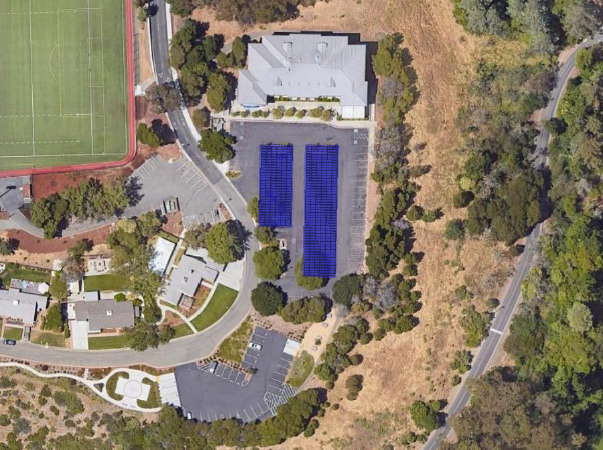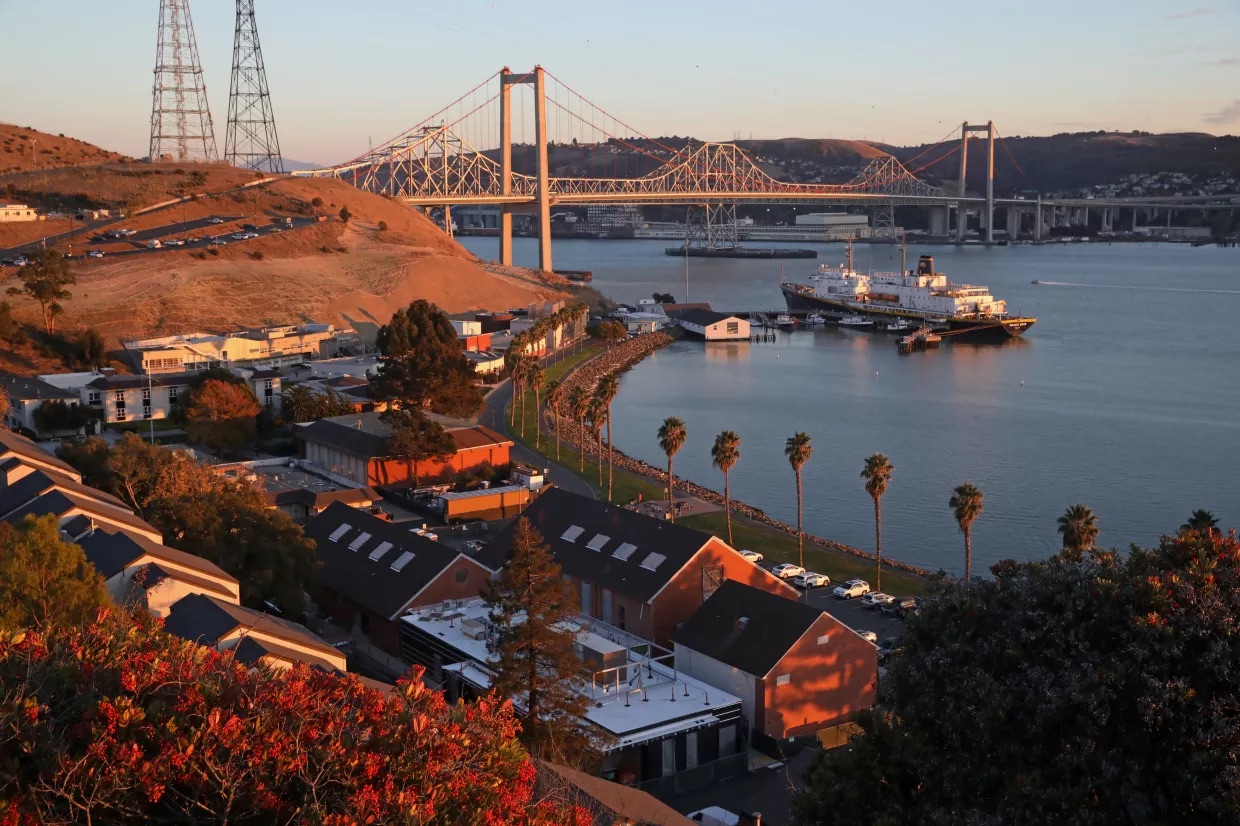Sustainability Initiatives

Solar Microgrid
Supply Chain, Engineering, Regional Study
Minimizing dependency on grid power and reducing campus electricity costs| 2023 | 2022 & Past |
|
|
Learn more about SUSTAINABILITY
- The Watch Home Athletic Contests
- The Marketplace Tabling
- Stopping cadets at the disposal area and educating them to correctly dispose their waste (or get them in the habit).
- CommUNITY Day
- Earth Week
- CSU-Wide EcoChallenge
CSU students, faculty and staff are invited to participate in a CSU-wide competition, the Earth Month Ecochallenge, throughout the month of April. Together, CSU campus teams will take action on 80 of the most substantive solutions to reduce greenhouse gas emissions and stop climate change. Sign up on the Ecochallenge website, join the CSU Maritime team and challenge the other CSUs and see how 30 days of action can add up to a lifetime of positive change for you and the planet.
On October 27, 2019, the Glen Cove Fire leapt across Interstate 80 and threatened Cal Maritime's campus. Thanks to the quick response of the Vallejo Fire Department and other first responders -- including faculty and staff -- damage was contained to a small area. The bridge walk and tree planting honor that day and support revegetation efforts.
Friday, October 27, 9:00 a.m. - 11:00 a.m.
Please join us for our 4thAnnual Walk (3.0 mile - round trip) across the Carquinez Bridge to recognize and reflect on the campus-altering fire event of October 27, 2019, and honor those who helped save and rebuild the campus.
Who:
Campus Community, Alumni, Neighbors, First Responders
Location:
Meet in front of Physical Education & Aquatics Center
Parking:
Lot O, parking permit required
Contact:
Chelsea McClain, cemcclain@csum.edu
*Wear comfortable shoes, dress in layers, bring a water bottle and positively reflect.
UOD: PT Gear
Friday, October 27, 1:00 p.m. to 3:00 p.m.
Come join our work party and service back to our campus as we continue the revegetation of the fire-damaged hillside on campus. We will have 60 trees provided by the Student Conservation Association ready to plant. Tools and instructions will be provided.
Who:
Campus Community, Alumni, Neighbors, Student Conservation Association
Location:
Parking Lots E/F
Contact:
Riz Aliga <raliga@csum.edu>
UOD: PT Gear
What is Farm to Fork?
Our mission has always been to support the campus with opportunities to gather with community (cadets, faculty, staff/admin) by celebrating our biodiversity and applying sustainable practices when it comes to growing, consuming, and disposing (organic) produce. We primarily achieve that through the implementation of knowing what you consume, where it came from, and how it affects our lifestyle.
|
Environmental Sustainability |
Empowering Communities |
Equity +Diversity |
Healthier lifestyle |
|
|
|
|
Looking Ahead
Showcasing alternative food options. To highlight “local eats” providing tools to build their capacity to launch or grow efforts to market to campus, therefore increasing sales to campus for local businesses
- Supply and demand, including price points, volume requirements, and seasonal availability
- Logistics: delivery requirements and determining what local foods our campus purchase
- Food story: safety and responsibility
- Relationship building with Sodexo
Marketing
- Identify and expand curricular opportunities to connect to campus community gardens
- Ask Sodexo and bring a chef into the classroom or host 25Live event cadet-invitations
- Campus signage newsletters (print and electronic)
- Seasonal Magazine + Bear’s Tale etc.
- Preview + Recap
- www.csum.edu website + 25Live events + META
- Local media
- Times-Herald
- Napa Valley
- Vacaville
- Bay Area News Group
- Community
- Cadets/ASCMA
- Staff/Faculty Departments
- Alumni
- KFam
Bio-generated nutrients offered to our campus. Quads (facilities) will drive around a 200-gallon tank to transport the nutrients. It is a false rumor that carbon monoxide gas will be spread.
What is a biodigester?
One way for our campus to be more sustainable is by utilizing a biodigester. They are an excellent addition for businesses looking to be more environmentally friendly. Biodigesters are an effective way to reduce the carbon footprint of a business, easily manage food waste, and save money. It is a system that biologically digests organic material, either anaerobic (without oxygen ) or aerobically (with oxygen). Microbes and other bacteria break down organic materials in a biodigester. Most food, including fat, greases, and even animal manure, can be processed in a biodigester.
- What is the Project Scope?
- "Installation of a prefabricated bio energy system, horse microdigester, model AD25 and new concrete equipment pad and associated electrical work. Project to be completed no later than 11/15/2023."
- What is the particular vendor chosen?
- Impact Bioeneg, Inc's HORSE Microdigester, Model AD25
- What are the unique performance features of the product or brand you have specified
that are not available from any other product? Be specific
- Quiet, near Lower Res Hall and The Marketplace
- Generator #1 operates at 1.6kW and is air cooled
- Generator #2 operates at 3.8kW and is air cooled
- Generator #3 operates a 6.0kW and is CHP, electric start
- The location is directly under a residential building and the generator features a drying bed that makes it quiet and a more safe (and enjoyable) environment for the cadet living above the unit.
Where will the biodigester be located?
The biodigester will be installed between Lower Residential Hall (LRH) and The Marketplace, specifically where the existing garbage disposal bins are.
Why did we invest in a biodigester?
Biodigesters are a closed system; therefore, it gives off no odor from food waste; this will eliminate flies and rodents from the facility, increasing hygiene. Also, eliminating food waste on-site saves money by reducing hauling costs. The capacity of food a biodigester can process depends on the size; larger the digester more food it can handle. Biodigesters are a living system and do require maintenance. However, they are easy to use and maintain.
Of course, one of the great benefits of biodigesters is they are eco-friendly and will reduce the dining center's carbon footprint significantly. Food scraps and other organic materials decaying in landfills release methane and carbon dioxide contributing to climate change. Food waste is estimated to be 30-40 percent in the United States and represents the largest category of materials in landfills. Diverting food scraps and other organic materials from landfills, methane, and carbon dioxide can be captured and used efficiently.
With the installation, the biodigester can be recreated to use methane gas and charge campus electric golf carts.
- Tracking food waste - guess your lunch's carbon footprint?
- Goes to locked dumpster bin, gobbled up by Recology
- Portions for catering depends on individual
- Weighing the options of demand
- Eat what you can finish
- Vignette video of marketplace dining
- Daily report generated
- How much waste on a certain product
- Kitchen + chef room
Contact
Rizal "Riz" Verder Aliga
Coordinator for Energy and Sustainability
raliga@csum.edu
707-654-1416
FAX: (707) 654-1171

